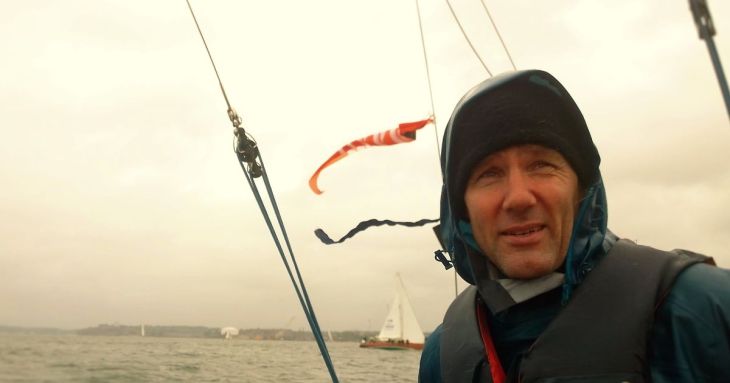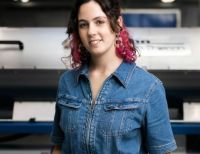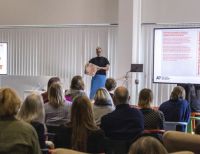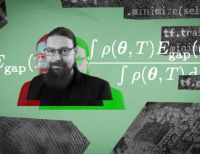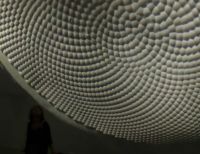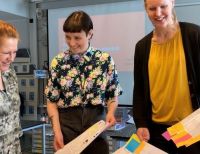What does your professorship mean?
‘What's important about it is co-development, which means bringing unexpected parties together to find new perspectives. In design, this is done continuously, involving those who are affected by the design. User-centredness in all design is important. I think of the circular economy in terms of living with the changes in society: when we have a problem or a goal, we have to think about who should be involved in the design – who has an interest and who can influence it – and bring them together, in a process where there is a willingness to find a solution. The challenge is also to be able to look beyond topics and categories, to break free of boundaries and barriers. Out-of-the-box thinking can help us to find new perspectives, and also to question our own way of thinking.
Circular economy is a good word to describe the basis of sustainable societies, because if its challenges cannot be solved, it will be difficult to achieve social sustainability, and vice versa. Circular economy is and should be a central part of the thinking of all designers: their job is to solve problems, and increasingly planetary problems. They need to have a holistic understanding and a sense of scale, even if their practical task can be to consider, for example, how to get households to sort and recycle better. For someone working with design, it is natural to understand business in a broad sense – to see how new technologies develop and expand in society. This professorship also shows that interdisciplinarity is key in these issues, and that management and design go hand in hand on many levels.’
What brought you to Aalto?
‘I studied Industrial Engineering and Management and life cycle thinking, although at the time there were no degrees in the subject, but we set out to develop the field in a student-driven way and did our theses on the subject. Later, I worked as an environmental expert at telecommunications company Nokia, but I found that I was more interested in topics concerning consumption and everyday life. So, I came to the University of Art and Design Helsinki (today Aalto University School of Arts, Design and Architecture) to study the arts and crafts. I ended up doing my dissertation on the same topics at the School of Economics (today Aalto University School of Business) and did my PhD in 2006. Shortly afterwards, the Creative Sustainability programme for sustainable development was set up, which I was responsible for and have been running since 2015.
So, environmental management, circular economy and life cycle thinking were part of my undergraduate degree at the time, and then I went down the design path. A big inspiration here has been the joy of making things with my hands and the satisfaction of doing something tangible. I've wanted to be exploring and actively dismantling the squirrel wheel of work and consumption. I have also taken the industrial scale of the circular economy seriously.’
What are the highlights of your career?
‘For me, the most meaningful has been my time at the Department of Management, especially as a post-graduate student. It was an open academic community for whom central was the inspiration and motivation on what we were doing – what was counting is what we were trying to achieve. At the same time, it was clear that academic research had a special role to play in the society. My own dissertation was critical of environmental governance and consumer policy. Its conclusion was that we are part of the problem we are trying to solve. It is an entanglement that is difficult to break free from without critical thinking.
I find those moments liberating, when I have realised that we need to be able to 'think the impossible', as Michel Foucault has said – to see that we are shackled by the structures of our thinking. Similarly, understanding that critical thinking is not only analytical but must also be creative and synthetic has been important.
I may not be a traditional researcher, because I am not a very analytical person, but I feel that new-thinking and dissenting are my strenghts. I'm not saying that everyone in academia should be a dissident, but for me it's been natural. And university is also a place that gives you the opportunity to do that. Personally, I think that as a university we have to dare and be able to think differently. For me, this has been a promise of what we should try to do.’
